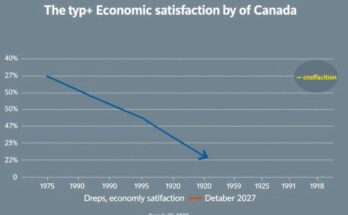President Donald Trump’s intentions to enhance American economic freedom through tax cuts and reduced regulation are now jeopardised—not by Democrats, but by his own administration. The aggressive strategies in his trade war threaten to diminish these gains by imposing tariffs that restrict economic choices for Americans, undermining efforts to foster growth and prosperity.
Economic choice is crucial to freedom, and government can either support these choices through fair protection of property rights or restrict them via taxes and tariffs. Research consistently correlates economic freedom with increased income, investment, and growth. Trump’s initiatives might spur growth, but the current tariffs could render those efforts futile, as they directly impede individuals from making their own economic decisions.
Historically, America has embraced trade freedom, peaking in the 1990s. However, as other nations embraced free trade, the United States stumbled to 53rd place in trade freedom today. Trump’s assertion that American consumers incur losses when importing means he overlooks the fundamental principle of voluntary exchange benefiting both sides.
Trump believes tariffs will ultimately benefit American producers, with a cost he views as justified. Yet the reality manifests as financial losses for both consumers and producers, with predictions of household costs soaring by $1,200 by 2025. Moreover, protective tariffs historically lead to job losses in related industries, as evidenced by the steel tariffs saving few jobs at a significant cost to manufacturing positions.
The auto industry is in disarray, with leaders warning that new tariffs could decimate the U.S. sector while favouring foreign competitors. Tariffs encourage complacency among protected companies, detracting from consumer needs and innovation—steel protection has been shown to yield poor performance and stifle advancements.
Ultimately, excessive trade barriers could unravel gains in Trump’s tax and regulatory reforms, as the strength of trade freedom supports broader economic liberties. Prominent economists historically advised that liberating trade paves the way for comprehensive economic freedom, while limitations can threaten these freedoms. It is vital that Trump’s trade policy does not sabotage his broader economic agenda, facilitating growth instead of hindering it.
Trump’s trade war poses a serious threat to his economic freedom agenda, undermining the intended benefits of tax cuts and deregulation through aggressive tariffs. As trade freedoms decline, both consumers and producers suffer financial losses, potentially reversing progress in economic liberties and forcing a reconsideration of trade policies to safeguard broader economic goals.
In summary, while Trump aims to foster economic freedom through tax reforms and reduced regulations, his trade war, characterised by aggressive tariffs, threatens to undermine these very initiatives. As trade barriers rise, not only do consumers and producers suffer, but the long-term consequences may also diminish the economic freedoms that were intended to be expanded. The need for balanced trade policies has never been more critical to the preservation of overall economic liberty.
Original Source: www.marinij.com



